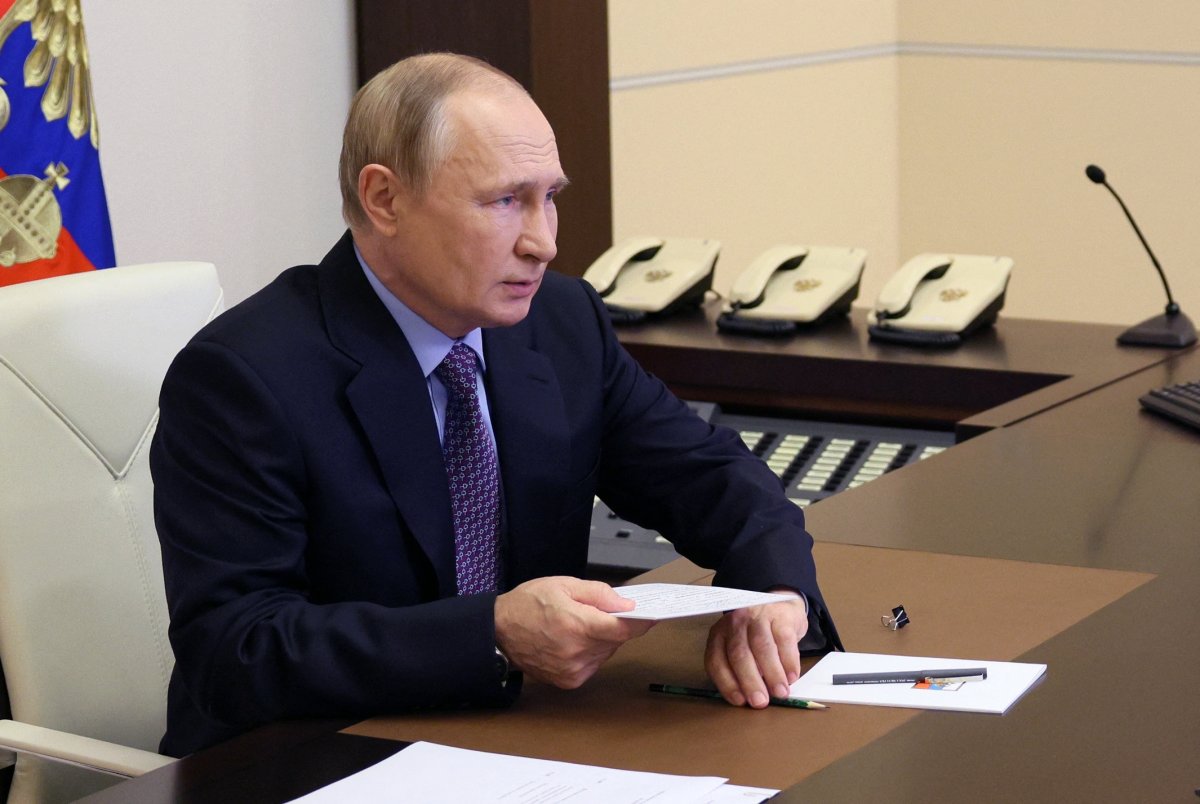Those who think that Russia has lost the war in Ukraine given Ukraine's recent military victories need to think again. They don't understand Putin's mindset, his high-risk tolerance, and his willingness to fight and create mayhem to win a high stakes battle. The overwhelming advantage Ukraine is now enjoying, fueled by the U.S., which has supplied superior training and top-of-the-line military hardware, will result in Russia turning to a new strategy.
Energy has always been Putin's best weapon, and OPEC+ just handed Russia a massive win by announcing the biggest oil supply cut since 2020 amid soaring inflation in Eurozone and the U.S. If oil hits $100 a barrel—a real possibility now—Russia will make $1 billion a day, according to United Refining Company CEO John Catsimatidis. This will continue financing Putin's war machine and enable him to deploy his energy weapon against Europe, as winter is approaching fast.
All of which is to say, Putin is not backing down. He is recalibrating. When hounded, Putin's MO is to fight back to get out of his corner. "If you want to win, then you have to fight to the finish in every fight, as if it was the last and decisive battle," Putin once said. "You need to assume that there is no retreat." That's how Putin has always fought, and it's been his strategy since the beginning of this conflict.
He will not be backing down this time, either. Ukraine is part of what Russia considers its vital security perimeter, meaning this fight has existential stakes for Moscow and for Putin personally. Ukraine's victories on the battlefield will not result in Putin ending the war but rather a turn away from conventional warfare.
The only question is, what will he turn to?
Russian strategists have long been working on new generation warfare tactics, which include the so-called Strategic Operation to Defeat Critical Infrastructure of the Adversary (SOPKVOP), which prioritizes civilian instead of military targets, employs both kinetic and non-kinetic strikes, and can be used both in wartime and in peace time. The goal is to defeat a population's will to fight and unbalance a society by degrading facilities that are vital for its functioning.

Having failed to understand Putin's mindset, our own government has naively or foolishly enabled SOPKVOP. Several years ago, the Department of Homeland Security posted on its website a list of 16 critical infrastructure sectors, which the Russians promptly scooped up. Those entities include energy, water, health care, emergency, chemical, nuclear, communications, government, defense, food, commercial facilities, IT, transportation, dams, manufacturing and financial services. Amazingly, in June 2021, following major Russian cyber attacks on Colonial Pipeline and the JBS meat processing facility, President Biden handed a list of critical U.S. infrastructure to Putin, asking him to spare those from cyber strikes.
It was a roadmap for how to weaken us.
The Russians believe that Western societies have a low threshold of tolerance for discomfort and hardship and that people will put pressure on the government to stop the pain. Expect Moscow to target Europe and the U.S. with cyber strikes on critical infrastructure to compel us to abandon our support for Ukraine.
They've been preparing for this for a long time. Russia has studied the U.S. and other countries' vulnerabilities and conducted "proof-of-concept" on critical infrastructure. In March, the U.S. Department of Justice indicted four Russian intelligence operatives and a cyber-hacker who worked for the Russian government and were conducting two separate "historical" hacking campaigns worldwide between 2012 and 2018. The key target of this clandestine program was the global energy sector. The Russians were doing what we call in the intelligence business "strategic targeting": mapping out access in order to disrupt and damage computer systems at a future time of its choosing, as part of the intelligence preparation of the battle space. Thousands of computers at hundreds of companies and organizations in approximately 135 countries were impacted.
Russia has already crossed the cyber Rubicon by temporarily shutting down Ukraine's power grid in a crippling operation during Christmas of 2015, causing a blackout for 250,000 people in freezing temperatures. This was the first recorded cyberattack on a power grid outside of a military conflict.
Russia gave us another preview of SOPKVOP and new generation warfare this past weekend, shortly after Putin warned that he is prepared to use "all means" in Russia's arsenal, including "various destructive methods." The Nord Stream pipeline then gushed with gas leaks, creating an environmental disaster in the Baltic Sea. It was an act of industrial sabotage, which is highly likely the work of the Russian government.
On Monday, NATO reportedly warned members that the Russian special mission nuclear submarine Belgorod, armed with a bus-size "doomsday" weapon called Poseidon, left its Arctic harbor. There are fears that Putin may have deployed the submarine to test Poseidon, which is capable of creating a 1,600 foot radioactive tsunami, a tactic aimed at flooding and destroying coastline cities.
While Poseidon will probably not be operational until 2027, testing would be a clear signal by Putin that he is prepared to climb quite high on the escalation ladder to get Ukraine and the West to back down, rather than face defeat in a war he believes neither he nor Russia can lose.
Make no mistake: Putin will not back down. He is merely shifting strategy.
Rebekah Koffler is the president of Doctrine & Strategy Consulting, a former DIA intelligence officer, and the author of "Putin's Playbook: Russia's Secret Plan to Defeat America." She also wrote the foreword for "Zelensky: The Unlikely Ukrainian Hero Who Defied Putin and United the World."
The views expressed in this article are the writer's own.
Uncommon Knowledge
Newsweek is committed to challenging conventional wisdom and finding connections in the search for common ground.
Newsweek is committed to challenging conventional wisdom and finding connections in the search for common ground.
About the writer
To read how Newsweek uses AI as a newsroom tool, Click here.








